|
Like millions of Buddhists worldwide,
Vietnamese Buddhists, in the past and at present as well, always pay
respect to Buddhism. Therefore, coming to
Vietnam
, you will see the
presence of Buddhism mingling with the daily activities of people in this
beautiful country.
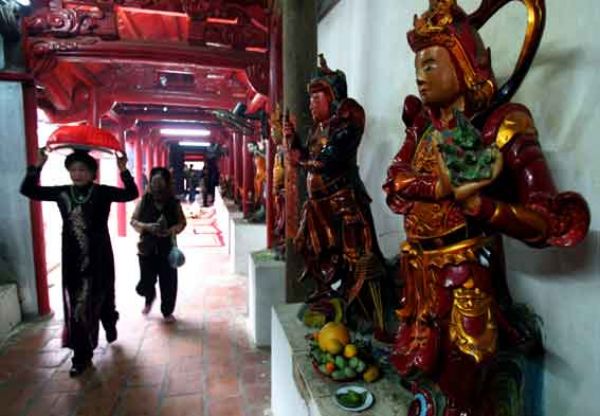
(Photo by
Viet Thanh)
In rural
areas, there are village pagodas with architectural styles, simple and
familiar but sacred. Everyday, the village pagodas are open to people who come
to worship Buddha. The offering tray prepared by rural people
to worship Buddha usually includes rural products, such as bananas, areca nuts,
sticky rice, truncated cone sticky rice, a plate of cakes and green
bean sweet soup.
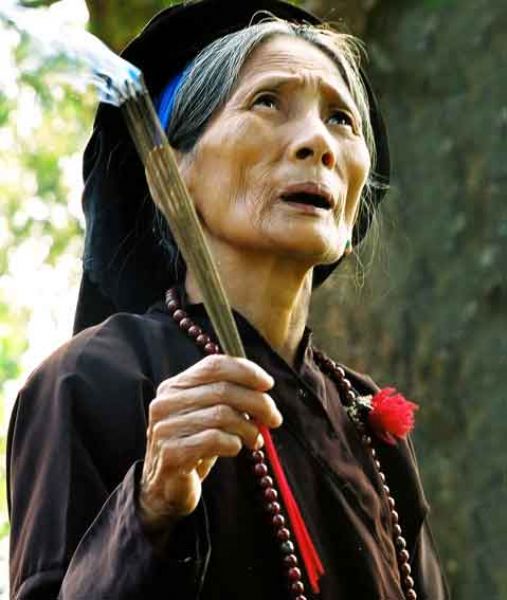
(Photo by
Trong Chinh)
Like many other countries having
developed Buddhism in the world,
Vietnam
is a country with a great number of Buddhist followers.
They come to Buddhism because they adore Buddhism’s virtuousness
of kindness to animals, generosity, tolerance and mercifulness. The image of
an old Buddhist with burning incense sticks in her hands looking
towards the Buddhist sanctuary with respectful eyes reflects the
devoutness of Vietnamese Buddhists.nbsp;
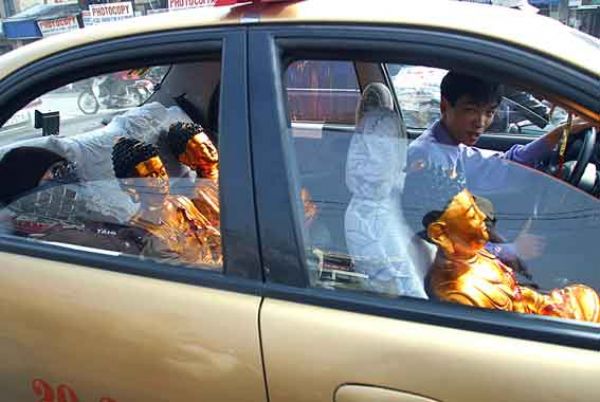
(Photo
by Le Anh Tuan)
In urban areas, people have their own ways
to express their respect to Buddhism. For example, the Buddhist in this
photograph travels long way to a traditional craft village to place an
order for Buddha statues, which are red lacquered and trimmed with gold, in order to
offer to a pagoda on the occasion of the inauguration of the
pagoda’s central shrine.
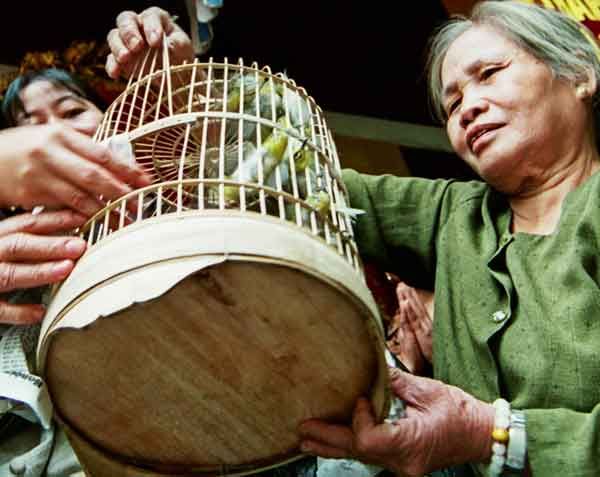
(Photo by Trong Chinh)
Among innumerable religious
rituals of Vietnamese people, there is a good custom of Buddhist followers
which is often mentioned by people. That is the custom of setting free the
animals, commonly birds and fish. The animal-releasing was a custom
originating from Buddhism. For the Vietnamese people, holding a ritual of
releasing the animals on important holidays, such as Tet holidays and Buddha’s birthday is an activity
to show their kindness to animals, benevolence and saving from misfortune
and danger. This is one of the virtues of the Vietnamese people.
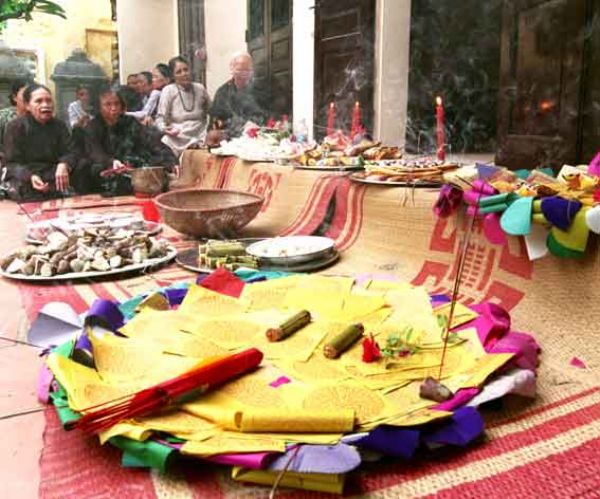
(Photo by
Trong Chinh)
Apart from the custom of releasing the animals,
Vietnamese Buddhists have the custom of holding the ceremony of pardoning the
deceased, or the ceremony of worshipping the wandering souls, on the
occasion of Buddhist holiday (lunar July 15). On this day, in addition to the ceremony
to pray for the peace of the deceased’s souls, people also prepare
offers to worship the wandering souls to show their
benevolence.
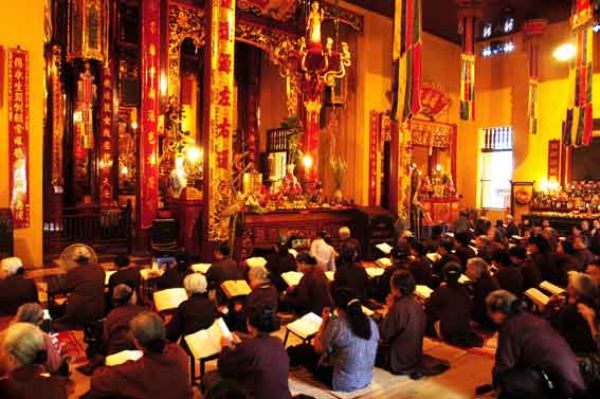
(Photo by Viet
Thanh)
Another religious activity of
Vietnamese Buddhists is going to pagodas on the 1st and
15th day of the lunar month to recite Buddhist scriptures and
pray to Buddha for peace and prosperity to the country, happiness to the
families and contentment of people. On these days most pagodas throughout
the country are crowded with old and young Buddhist followers. At Quan Su
Pagoda, one of the large pagodas in
Hanoi
where the head office of the
Vietnam Buddhist Shangha is based, a large number of Buddhists from all
parts of the country gather to recite Buddhist scriptures and pray to
Buddha.
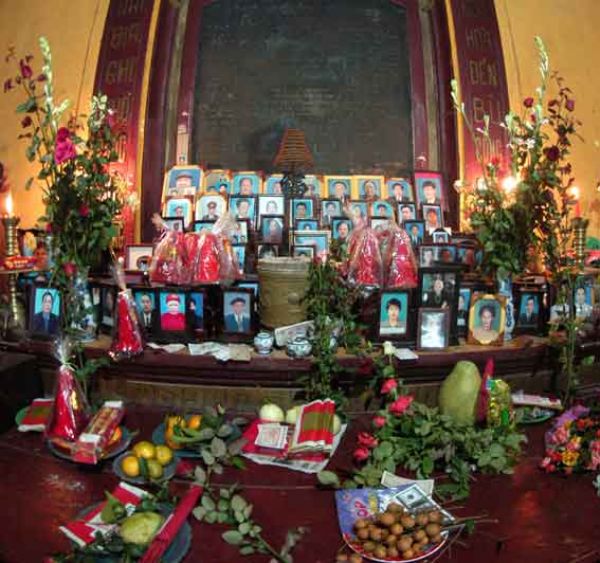
(Photo by
Le Minh)
When alive, people are devoted to Buddhism, when they die
they want to live beside Buddha. According to the
Vietnamese people’s custom, the descendants have an obligation to care for the
graves of their ancestors, grandparents and parents, worship and visit the
graves on their death anniversaries. However, people with difficulties and
some others wish that when they die their bodies will be cremated and part of
the ash will be sent to the pagoda together with a photograph,
hoping that their souls will be close to Buddha and they will be worshipped at
the pagoda on their death anniversary.
Story by Thanh
Hoa |